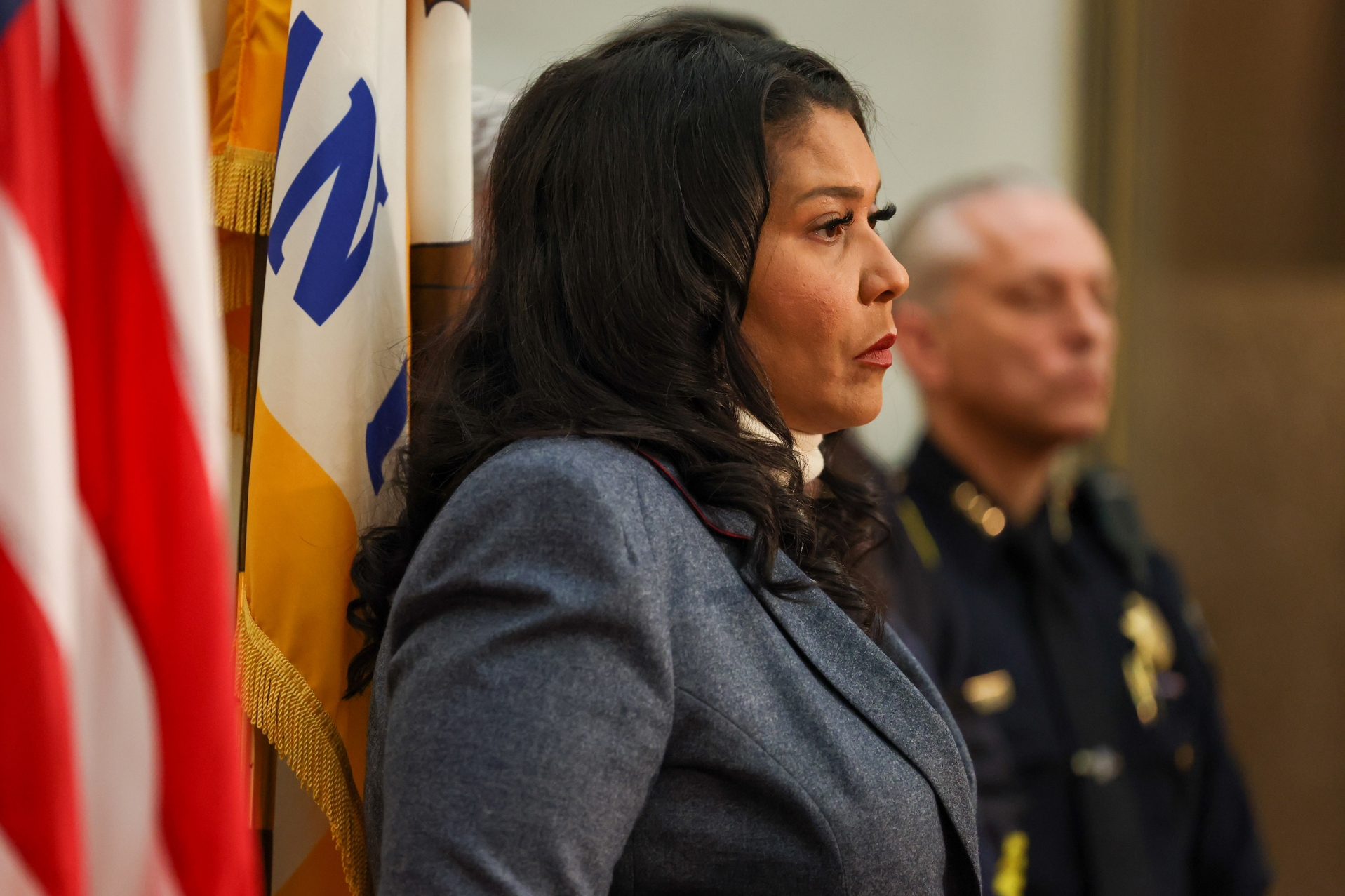After pulling the plug on a plan to open 12 safe-consumption sites in December, Mayor London Breed’s Office announced Wednesday that it will eventually allow a nonprofit to open one.
Anna Duning, Breed’s budget director, said during a hearing on Wednesday that the Mayor’s Office is planning to meet with the city attorney to construct a model for a safe-consumption site to run in San Francisco. The newly renewed promise comes after Breed reportedly paused a plan to open 12 drug-use sites in late 2022, sparking outrage among advocates who say the facilities are essential to a cohesive overdose response.
The city attorney has said the city would support a nonprofit that used private funding to open a safe-consumption site, where people use potentially lethal drugs under medical supervision. This would follow a model that’s being used to run two sites in New York.
“Our next step is to work with the City Attorney’s Office to either understand how the city attorney defines that model, figure out the structure and make it happen,” Duning said.
Several supervisors were critical of Breed for allowing the city’s first safe-consumption site, the Tenderloin Center, to close in December without an imitable replacement. Supervisor Hillary Ronen greeted the mayor’s new promise with skepticism, criticizing Breed for not acting sooner.
“You say nothing,” Ronen said. “The same things over and over and over again. Nothing happens, and you slam the brakes on the community.”
A nonprofit called the Gubbio Project has said that it’s capable of opening a safe-consumption site at a church in the Mission neighborhood, should Breed give her approval. The SF AIDS Foundation also has a proposal to open a safe-consumption site at 444 Sixth St., according to public records viewed by The Standard.
In 2021, New York became the first city in the country to allow a nonprofit called OnPoint to openly operate two safe-consumption sites in the city. Those sites cost $1.4 million annually and operate 28 drug consumption booths, according to OnPoint executive director Sam Rivera.
Rivera joined Wednesday’s hearing alongside drug-use researcher Alex Kral to present evidence that drug consumption sites reduce crime and public drug use while improving health outcomes for clients.
“My favorite data point is zero. No one has died,” Rivera said. “My advice to San Francisco is to be San Francisco. Step up and do what’s right.”
Kral, a senior epidemiologist for the Research Triangle Institute, estimated that San Francisco would save $3.5 million annually by operating a safe-use site.
Kral conducted a study on the Tenderloin Center that showed a 19% decrease in public drug use after its opening. Though those findings were disputed by some in the neighborhood, and the Tenderloin Center drew criticism for failing to link many clients to drug treatment.
Rivera said that his nonprofit works directly with the New York Police Department, supplying them with information cards to hand to people who are using drugs in public.
“Our No. 1 relationship is with NYPD,” Rivera said. “Once police officers came and visited, they changed their minds completely. They saw the need for these sites.”
